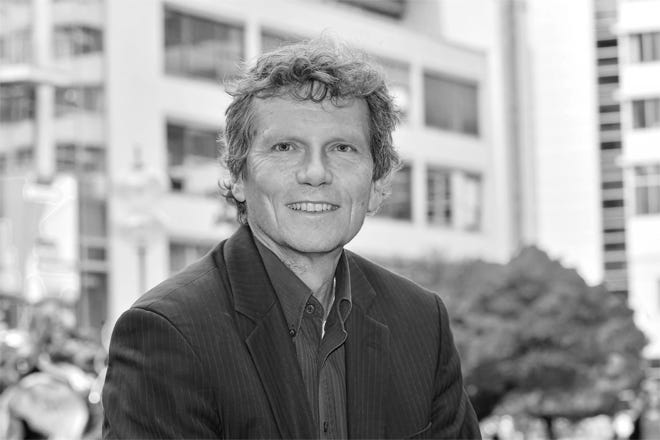Hartmut Rosa: Social Acceleration, Burnout, & The Tyranny of Speed
Remember those fleeting moments when the world seemed to slow down? A deep breath, a lingering gaze, a conversation that wasn’t rushed. Now, how often do those moments feel like rare luxuries, quickly devoured by the next urgent task, the next notification, the relentless drumbeat of ‘more, faster, now’? It’s a feeling many of us know intimately, a subtle yet pervasive sense of being perpetually behind, always playing catch-up. But what if this isn’t just a personal failing, or a bad day, but a fundamental feature of the very society we inhabit?
The Relentless Treadmill of Modernity
Enter Hartmut Rosa, a German sociologist who has spent decades meticulously dissecting this modern malady. Rosa argues that we are not merely “feeling” busy; we are living within a system fundamentally structured by what he calls “social acceleration”. This isn’t just about faster cars or quicker internet, though those are certainly symptoms. Instead, Rosa identifies three intertwined dimensions of this acceleration:
Technological Acceleration: The ever-increasing speed of transport, communication, and production. Think bullet trains, fiber optics, instant global news cycles.
Acceleration of Social Change: The rate at which social structures, norms, values, and even identities shift and become obsolete. What was ‘normal’ a decade ago can feel quaintly outdated today.
Acceleration of the Pace of Life: The subjective experience of having less time, despite living longer and having more ‘time-saving’ devices. We cram more activities into the same temporal units.
This perpetual push for speed, Rosa explains, isn’t accidental. It’s a structural feature of modern society, relentlessly driven by economic imperatives – the need for constant growth, increased productivity, and competitive advantage. Technological advancements, far from liberating us, often become new mechanisms for accelerating our lives, demanding we keep pace with their ever-evolving capabilities.
When Speed Steals Meaning: Burnout and Alienation
The consequences of this ceaseless acceleration are profound and often deeply unsettling. If everything is constantly moving, changing, and demanding our immediate attention, what happens to our capacity for deep engagement? What becomes of reflection, contemplation, or simply being?
Rosa reveals that this constant demand for speed impacts our relationship with time, ourselves, and the world around us. We become alienated from our own experiences, unable to truly connect because we’re already mentally preparing for the next item on the to-do list. This isn’t just stress; it’s a profound loss of meaning, an experience of the world as a series of objects to be consumed or tasks to be completed, rather than a space for genuine interaction.
The term “burnout” perfectly captures this exhaustion born not just of overwork, but of this chronic inability to connect, to resonate. It’s the feeling of being worn thin by an invisible grinding wheel. Have you ever felt like you’re performing your life rather than living it?
To delve deeper into the intricate ways this phenomenon shapes our existence, consider watching this insightful discussion: Hartmut Rosa on Social Acceleration and Resonance.
The modern subject is always in danger of losing their breath, not because they are running, but because the ground beneath them is always moving faster.
— Hartmut Rosa
Unlock deeper insights with a 10% discount on the annual plan.
Support thoughtful analysis and join a growing community of readers committed to understanding the world through philosophy and reason.
The Promise of Resonance: A Different Tune
Is there an escape from this tyranny of speed? Rosa doesn’t advocate for a return to a pre-modern past, but he offers a powerful counter-concept: “resonance.” Resonance is the opposite of alienation and acceleration. It’s about establishing a meaningful, responsive relationship with the world, a mode of being where we are touched and transformed by what we encounter, and in turn, we touch and transform it.
Think of it as finding a reciprocal relationship with the world, rather than a solely instrumental one. It’s not about consuming information faster, but about letting information truly sink in. It’s not about ticking off experiences, but about being genuinely present within them. Resonance involves a few key elements:
Attunement: Being open and receptive to the world, rather than approaching it with pre-conceived notions or instrumental goals.
Transformation: Allowing encounters to change us, to deepen our understanding, rather than remaining unaffected.
Uncontrollability: Recognizing that genuine resonance cannot be fully engineered or controlled; it often arises spontaneously.
Cultivating resonance means consciously choosing moments of connection over relentless efficiency. It’s about finding spaces – in nature, in art, in deep conversations, in craftsmanship – where we can truly listen and respond, where the world ‘speakers’ to us, and we ‘answer’ in return. It’s a move beyond the instrumental and accelerated mode of existence.
Resonance is an experience of being touched by the world, of being able to respond, and of feeling truly alive in that interaction.
— Hartmut Rosa
The true battle of our age is not merely for our attention, but for our capacity to deeply connect with life itself, against the relentless current of acceleration.
Hartmut Rosa’s work offers more than just a critique; it provides a vital framework for understanding the subtle forces shaping our modern lives. The tyranny of speed is an invisible war for our minds and our souls, constantly demanding more, faster, now. But by understanding the mechanics of social acceleration and actively seeking out moments of resonance, we can begin to reclaim our capacity for meaningful engagement. It’s a challenging path, one that requires conscious effort to slow down, to listen, to feel, and to truly be present. Perhaps, in a world obsessed with speed, the most revolutionary act is simply to stop and breathe, allowing ourselves to be fully in sync with the rhythm of life, rather than just endlessly chasing it.




Quite insightful and refreshing ideas.